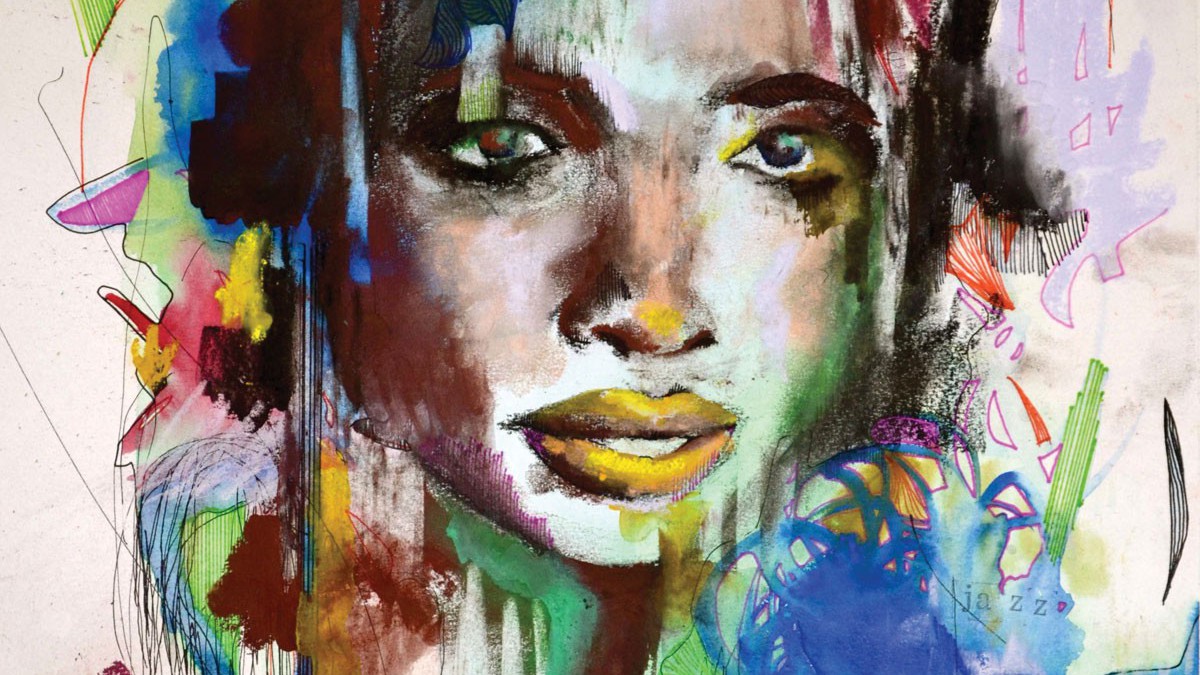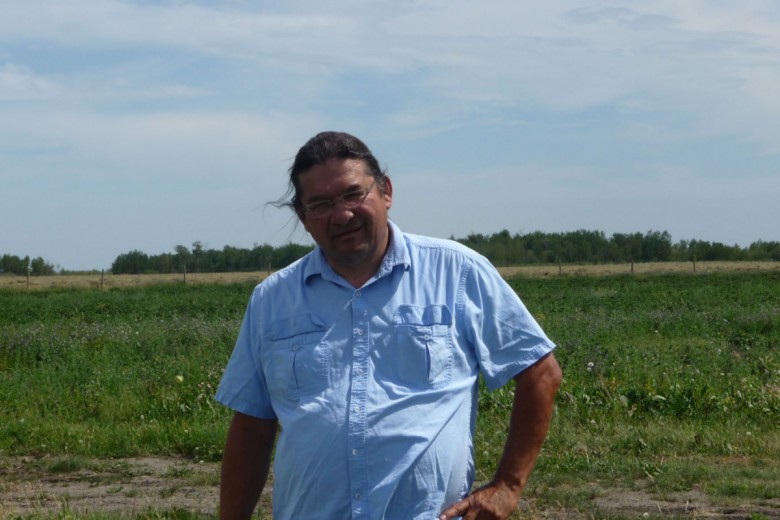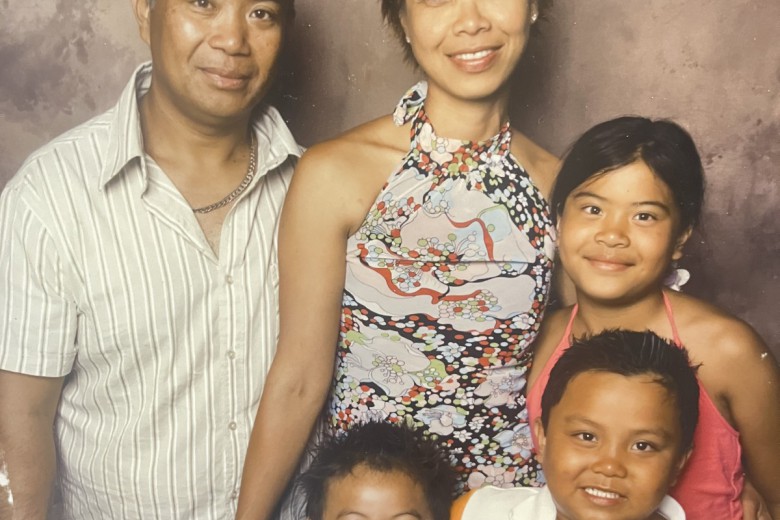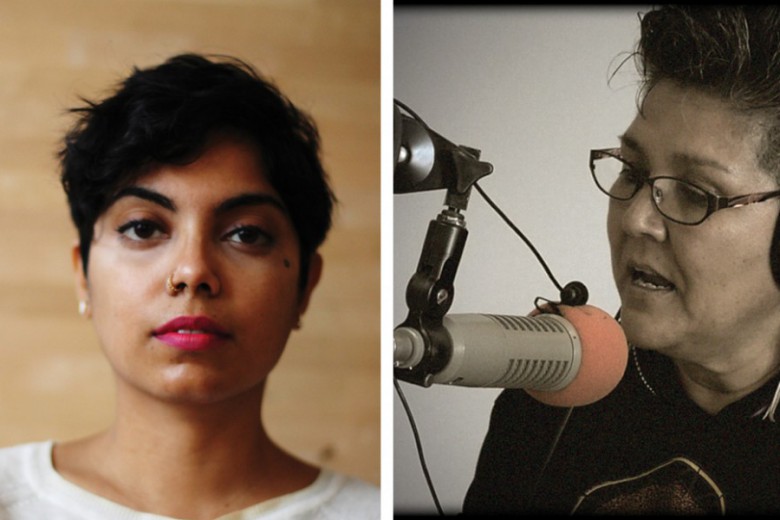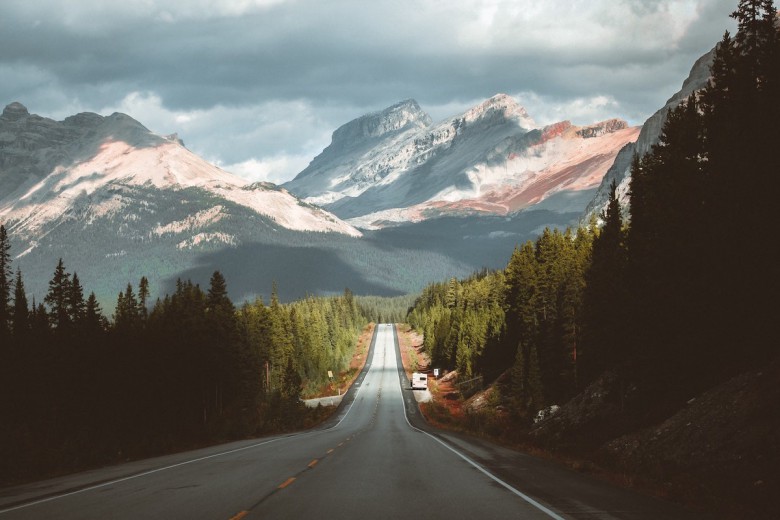Bouquets of flowers line the mantle and hallways. All my loved ones around me, mourning my death. I hear them suffer. I feel them squeeze my arm and kiss my forehead, shaking. Their tears on my skin. I cannot move or speak, but inside I scream, “I’M ALIVE!!!” I want desperately for them to hear me. “Papa, Mama, I’m alive! Do not say goodbye. Please, do not say goodbye!”
The lid lowers and is sealed shut. “Wait! No, no, no….” My casket is lifted and I am carried upon shoulders, carried along a current of procession songs and cries. No. This cannot be real. This must be a dream.
Cold. Dark. Underground. I want to scream and break this door open but I can’t lift my body. My stomach seethes with terror, rage, and desperation. I can’t quite remember who I am or how I got here. Fragments of disconnected memories stream away from me, like air sucked into a void. Am I breathing? How long have I been here? I am losing my mind. Frantic flashes of brightness take over my vision, jarring flutters of white and black. My body feels like it is rotting. Is this death or have I been forgotten?
Haitians have many stories of zombies. “Oh yes,” my grandfather would say, holding my gaze. “One of our relatives was made into a zombi.”
He shifts his weight in the chair, crossing a leg over. “It was many years ago, in Jérémie.” His ocean eyes look out into a time beyond reach but that spills through his stories and fills the room with its ether. Jérémie is known as the city of poets, and it is the birthplace of both my grandfather and his lineage of impassioned storytellers. His stories are filled with wild characters, magnetism, humour, and wonder. But this one is different. It demands a certain kind of attention and has left a feeling of something unsettled, even decades later and generations removed.
He looks out a long while, remembering a lifetime past. One arm leans on the chair back behind him while the other falls across the table. A faint motion of acknowledgement in his eyes and he is ready to tell the story.
“Her name was Nadège. She was young and very beautiful, and she was engaged to a nice man. An older man had wanted to marry her, maybe a distant acquaintance of her father’s. No one knew much about him but that he had a strange darkness … something hidden behind his eyes. Her father refused politely and never saw him again. People arrived from all over for the wedding, so, a few days in advance, her parents held a big dinner. The house was filled with people, exuberance, and laughter. But, unbeknownst to them all, someone must have slipped a poison into the bride’s drink because the next morning she was found dead in her room. It was devastating. Instead of a wedding, they had a wake. The wedding flowers were still fresh and became used for her funeral. And that was it. I think her fiancé eventually married someone else.
“Several years after the tragedy, some of our cousins were riding horseback in the mountains, weaving along narrow trails, and suddenly they came across her. She was working in a large garden. And there were others there, too. Our cousins called out to her, “Nadège! Nadège!” – but she did not respond. They stayed at a distance for fear of the master and his dark power, but remained there a long while, watching. They said she was vacant, lifeless, unaware of her own name. She stood up to turn and glanced over at them. Stared blankly in their eyes, then went into the house. The cousins returned home and shared what they had seen. It turned out that the property belonged to the strange man, though at the time no one could do anything. They were afraid, you see.
“A powerful substance made from a certain plant or blowfish poison is put into a person’s food. The poison is colourless, tasteless, and causes an abrupt death. The heart stops and the victim becomes paralyzed, unable to breathe – though they are aware of everything. Their senses are alert but they are powerless to communicate. Days after they are buried, the one who gave the poison digs up their grave and summons them to life. They steal the burial belongings or give them away to any helpers. Only, the dead do not fully awaken. Their body is alive but they are without memory or free will. They become zombies – made to live as slaves to the will of their captors.
“The only way to bring them back is to make them eat salt. Salt jogs their memory, returns their spirit. Only salt can make them human again.”
Since childhood I have always been both fearful of and captivated by this story – the phenomena of being stolen away from oneself, of being alive and dead at the same time. What scared me most was the idea that memory and identity could be hijacked and manipulated.
My mother was Taíno from Haiti, and a lifelong warrior for Indigenous peoples. She raised her children in Northern Canada so we could be close to our Inuit and Dene roots, nourished by our father’s people and homelands in ways that were impossible on our Haitian side. My mother’s family had fled from oppressive dictatorships in Haiti when she was a girl and couldn’t return for three decades. So she raised us with stories instead to fill us with the richness of Ayiti: the redness of the earth, the warmth and healing of the sea, the spirit of our people, our history, our folklore. She taught us to hold onto all of who we are and where we come from, to stay close to those sources of vitality and strength.
She also raised us with stories about conquistadores and the unconquerable spirit of ancestors who fought and died for love and freedom. This is how she taught us about the world and connected our feet to the path. She showed us to meet the realities of tyranny and colonization straight on, and to fight from the heart.
Taínos were the first Indigenous people to encounter Columbus. Slavery for us began when he noted proudly in his journal that the Taíno “are a handsome, smart and kind people…. They offered to share with anyone and when you ask for something they never say no … they would make good servants.”
Historians say my ancestors were wiped out within a few generations, claiming authority over our death with explanations like disease, slave labour, and intermixing. My mother said they were wrong. “Taínos are alive to this day. Many were killed and enslaved, but there were those who escaped, and others who fled to the mountains. Do not believe stories told by people who say they ‘discovered’ us, as if we were unknown to the world, then take our land and tell us we are extinct. We are Taíno. We know our ancestors’ names and carry stories of the love they had for our people, the courageous ways they fought to protect Kiskeya, our homeland.”
Years after my mom’s passing, I learned of a resurgence movement she was part of that is growing strength throughout the Caribbean and United States. Taíno people are re-emerging in the world, after living in hiding for 500 years. After everyone believed we were dead.
Indeed, Indigenous peoples across Turtle Island have been duped into believing in our own death for too long. Believing the story that we are conquered, that everything is lost, including ourselves, and that our time of thriving is in the past. We are brainwashed to think the only way forward is to forget our names and all that we come from; to accept the fact that we have been summoned to a new life in which we are no longer human beings connected to our spirits or our families or to the earth, imprisoned in service to the entity that poisons and exploits us at will.
We forget that anything came before, and that anything more exists. Death is one part of the story, but it is not our beginning. This is not who we are. The problem is, many act as though loss and defeat are where the stories of Indigenous peoples begin.
Maybe it has to do with Columbus putting us in shackles on our very first pages in their history of this place.
But we do not begin at 1492, or 1776, or 1867. We do not begin with conquest or colonization or the mass genocide of our peoples and destruction of our homelands. We do not begin with the Indian Act or residential schools or Aboriginal and treaty rights recognized and affirmed since 1982. We do not begin with thousands of missing and murdered mothers, sisters, and daughters. Loss of land and livelihood, stolen relatives, poverty, incarceration, broken families – these are not where our stories begin. The internalized violence and dysfunction within our communities are not how our stories begin. These are not our origins – they are our prisons, which we have been brainwashed into believing are our homes, our identities, our inherent attributes as a people, and the result of our own failure to keep up in a “civilized” world. These are stories generated out of violence and greed, made to suffocate life and terrorize us out of embodying our own stories of connection and belonging.
Origin stories are power, and they are not just about the past. That’s why we’re lost when we don’t know them. That’s why erasure of our experience is a powerful weapon. That’s why zombies are made to forget. When we remember where we come from, we connect to our ancestral being. Ancestral being is the salt. It extends beyond presence in this form, in this world, in this time. Take in the salt and we become channels of unending life force.
Something tingling on my tongue. Vision enters my eyes slowly, and they burn as if they haven’t opened for an eternity. I blink. The body I’m in feels foreign, but it takes a deep breath and that feels good. Good … strange to recognize a feeling. My thoughts search around faintly, but they feel my own. Like a secret freedom. My hands look familiar and when I move them they remember me. I am laying somewhere pleasant, graced with sunlight, soft and gentle. I lift my head but feel dizzy, disoriented, and nothing seems quite real. Except somehow everything does.
“Nadège,” someone says. “Byenveni lakay.”
Welcome home.


